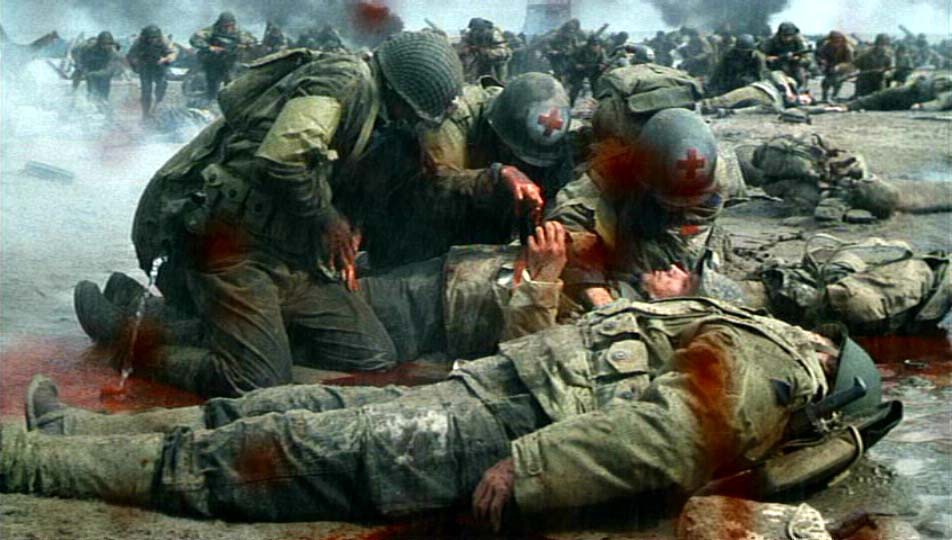Omaha Beach
Scene from Saving Private Ryan.
 |
|
General Sir John Hacket: “The military makes demands which few if any other callings do. And of course emotionally disturbed people talk about being trained to kill. The whole essence of being a soldier is not to slay but to be slain. You offer yourself up to be slain, rather than setting yourself as a slayer. Now one can get into very deep water here, but there’s food for thought in it.”
The essence of the soldier is to offer himself to be slain.
The perpetuation of warfare is based on our belief that sacrifice is good. Soldiers are good because they are willing to sacrifice their lives for their nation.
To be willing to sacrifice one’s life for one’s country is the essence of national goodness. Wars give soldiers the opportunity to demonstrate their goodness. The soldier symbolizes the sacrificed Christ, dying for all of us—so that we may live.
People get off on the idea that some young men are willing to give over their bodies to their nation. People love the idea that some men are so dedicated and devoted. National glory derives from the fact that men have died in the name of their country. Monuments and gravestones testify to our belief in the goodness of sacrificial death.
War requires that soldiers hand over their bodies to their country. To encourage men to do this, the soldier’s role is represented in terms such as honor, virility and masculinity.
If soldiers did not accede to giving over their lives, there could be no national honor—or glory. Without national glory, a country would no “history.” The death of soldiers constitutes—sustains—the fantasy of history. Soldiers die so that we can read about war in history books, and view battles on television.
The movie, Saving Private Ryan reveals how horrific and disgusting war is: soldiers drown as they try to reach shore or are machine-gunned to death when they reached shore. The film shows body parts floating in the water. This depiction of battle leaves little room for doubt that war is bizarre, sickening and monumentally destructive. Yet people perceive the war that lead to this battle as the “good war.”
War is “good”—in spite of what happens to the soldier—when people believe that the cause is good. The sacred ideology is conceived as more significant than the lives of individual human beings.
|